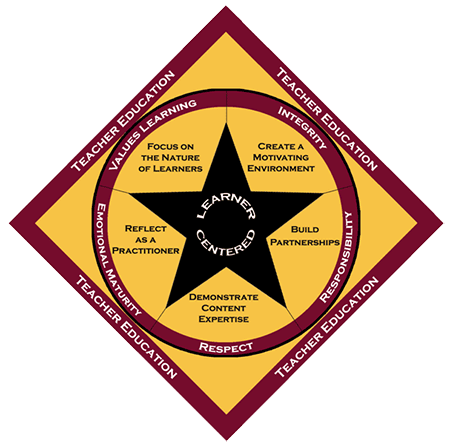

The Conceptual Framework for Teacher Education at the University of Minnesota, Crookston includes these essential components:
Pedagogical Paradigm: Learner-Centered
Teacher educators at the University of Minnesota, Crookston keep student learning and meaning-making at the forefront of our curriculum, relationships, and practices. We recognize our responsibility to create environments and experiences that help students discover and construct knowledge for themselves.
Conceptual Framework: Themes
Our Unifying Themes guide our curriculum and integrate our institutional student learning competencies and core values, Professional Educators Licensing and Standards Board (PELSB) standards, academic knowledge bases, dispositions, field experiences, student teaching, and assessments of student learning.
- Focus on the Nature of Learners
The developmental characteristics of the learner, temperament, learning styles, motivations, knowledge, skills, attitudes, experiences, and cultural context are central to facilitating learning. - Create a Motivating Environment
Creating motivating and challenging environments, developing responsive relationships, encouraging students’ active engagement in learning, and using inquiry learning strategies to increase students’ motivation to learn are at the heart of productive and positive teaching and learning environments. - Demonstrate Content Expertise
Academic subject matter standards inform what teacher education candidates need to know, understand, and be able to do. Teachers need to connect ideas to one another and apply them to real-world problems. - Build Partnerships
Building communities of learning, both in the classroom and beyond the classroom, are critical to maintaining professional partnerships and collaborations. Continual interaction and shared responsibility between and among members of our learning communities is essential in the preparation of highly qualified beginning teachers. - Reflect as a Practitioner
Developing reflection skills is a complex process which requires continuous analysis of ones’ teaching and the effect on the individual. Reflective practitioners demonstrate a sustained commitment to learning, questioning, and discovery